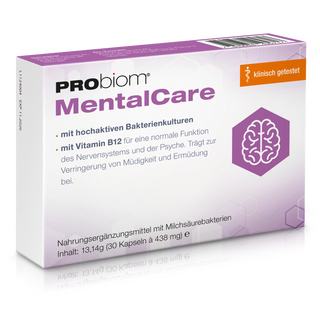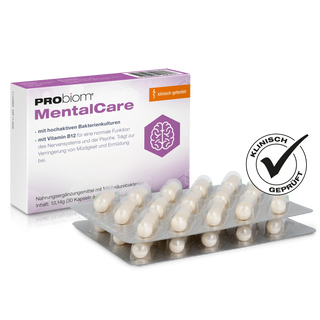Many parents are familiar with this: Their child complains of stomach aches, gas, or irregular bowel movements. Digestive problems in children are not uncommon and can have many causes. Probiotics offer natural and gentle support. In this article, we explain how probiotics can help children with digestive problems, what parents should look out for, and which products are particularly suitable.
Causes of digestive problems in children
Children's digestion is often more sensitive than that of adults. Digestive problems can arise from a change in diet, such as transitioning to solid foods. Food intolerances, infections, taking antibiotics, or psychological stress can also upset a baby's tummy. Even a lack of exercise plays a role.
How do probiotics help with children's digestive problems?
Probiotics can help in many ways. They support the restoration of natural intestinal flora, especially after antibiotic treatment. Many parents also report relief from diarrhea, bloating, and abdominal pain. Stool consistency can also improve, and bowel movements become more regular. Initial studies also suggest that some probiotics can strengthen the immune system and even prevent allergies.
What should parents consider when choosing probiotics?
Not every probiotic is automatically suitable for children. We recommend products specifically developed for children and offering child-appropriate dosages. Look for scientifically tested strains such as Lactobacillus rhamnosus GG or Bifidobacterium infantis . The products should be free of sugar, colorings, and preservatives. Drops or powders that are easy to take are particularly practical for children.
Recommended products and natural alternatives
There are numerous products on the market specifically formulated for children. Drops or powders can be easily mixed into food or drinks, making them easier to take. Fermented foods such as natural yogurt or pickled vegetables also contain probiotic cultures. However, these should be introduced in an age-appropriate manner and are not a substitute for a specific probiotic.
Conclusion
Probiotics can be a useful and natural supplement to support digestion in children. Especially in cases of recurring symptoms such as abdominal pain or irregular bowel movements, targeted administration can help restore balance in the intestines. It's important to choose the right product, and if in doubt, consult your pediatrician.
FAQ: Frequently asked questions about probiotics for children
At what age can children take probiotics? There are probiotics that are suitable for infants. It's important to choose an age-appropriate product and, if necessary, consult your pediatrician.
Are probiotics effective for every child? The effect can vary from individual to individual. Some children respond very well to certain strains, while others show little change. A little patience is often required.
Can probiotics have side effects? Probiotics are generally well tolerated. Occasionally, mild bloating may occur, especially when first taking the medication. This usually subsides quickly.
How long should you give probiotics? It depends on the specific case. After a course of antibiotics, a few weeks are often sufficient. For chronic conditions, a longer course of treatment may be beneficial—this should be discussed with your doctor.

















